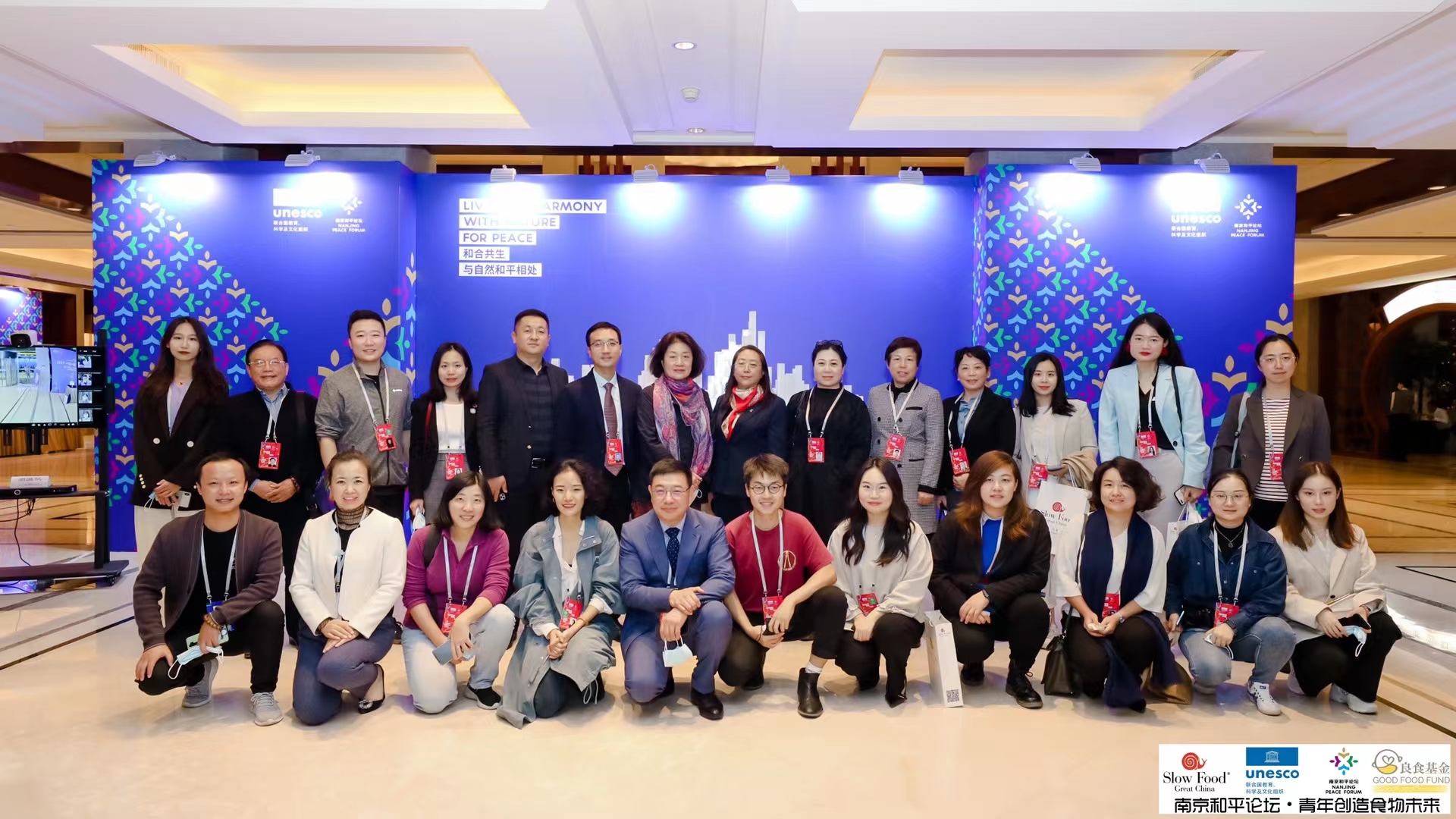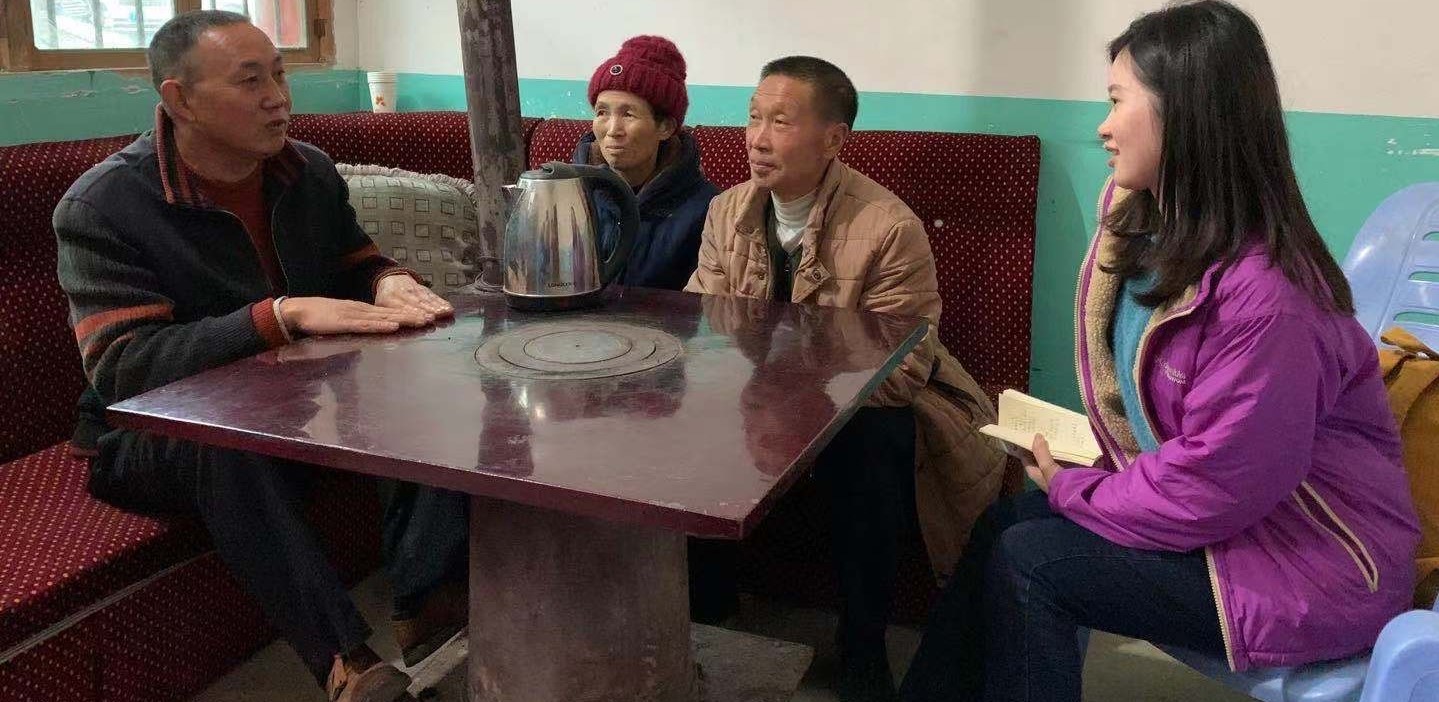In China, youth are at the forefront of transforming food systems
IFAD Asset Request Portlet
Asset Publisher
In China, youth are at the forefront of transforming food systems
Estimated reading time: 5 minutesYoung people are the future of the world’s food systems. According to United Nations estimates, 1.2 billion people worldwide (one in every six) are young: that is, between the ages of 15 and 24. These numbers alone mean that young people should have a say in how the food systems of tomorrow should be configured.
Of course, the world’s youth have already begun to speak out and act. In China, for example, youth have long been leading efforts to promote organic farming and sustainable consumption nationwide. Now, their voices and actions are driving the changes needed for food systems that are equitable, sustainable, and capable of providing good nutrition and stable livelihoods.
Young voices for food systems transformation
At the Food Systems Summit held earlier this year, IFAD collaborated with the UN Global Indigenous Youth Caucus to bring together rural youth from around the world. With a vote for action, they launched Act4Food Act4Change, a global campaign in which youth can pledge to orient their everyday actions toward system-wide change. Of the 100,000+ youth pledges made worldwide, over half were from China.
Young Chinese leaders have also established a Youth Advocates Network with support from the Good Food Fund and IFAD. Network members advocate on social media, enrol in courses and contests to strengthen their food literacy, and take actions that have a positive impact on the communities they interact with daily. Over 100 Chinese youth advocates have joined the network so far. Together, they have organized five independent dialogues for the United Nations Forum on Sustainability Standards, with over 200 attendees.
At the recent 2021 Nanjing Peace Forum, they launched the Nanjing Good Food Declaration, supported by IFAD, UNESCO, Slow Food and the Good Food Fund. This marked their commitment to promoting sustainable consumption and encouraging youth participation in agriculture and urban food governance.

Meanwhile, initiatives such as hackathons are proving to be reliable and popular ways to engage youth, especially among private sector partners. For example, during a recent workshop held by the Asia-Pacific Economic Cooperation (APEC), IFAD, FAO and YPARD, together with APEC representatives, pledged support for a youth hackathon on the theme of reducing food loss and waste, to be held in 2022.
Young people acting for change
In addition to campaigning for sustainable food systems, many Chinese youth activists have already begun to take action.
In May 2020, IFAD’s partnership with the Chinese tech giant Tencent and the Young Professionals for Agricultural Development (YPARD) network resulted in a nationwide social media campaign, “Investing Your Future in Agriculture”, that invited youth to share their ideas on how to tackle issues facing China’s agricultural development.
Within two months, prospective youth representatives had submitted over 600 proposals. Six outstanding entrants were invited to bring their proposals to a webinar with experts from IFAD, YPARD and academia. Two of these entrants then joined a supervision mission to an IFAD-supported project in Sichuan, where they presented their ideas: one on the development of women-led farmers’ cooperatives and another on introducing digital agriculture into the province.

Given the opportunity, young people can do even more than offer ideas. Many of them are already implementing changes that address structural issues in our food systems.
Li Dengyuan, from Tsinghua University High School, is one of the youngest of the youth advocates. Nevertheless, he successfully persuaded his school’s management to institute Meatless Mondays – a day when no animal products are provided in the canteen – to help curb meat overconsumption.
Meanwhile, Liu Xuefei, a young small-scale pig producer and leader of the Lin Er Jie Livestock Farmers Cooperative, uses free-range husbandry, with the support of an IFAD-funded project, to reduce the environmental impacts of pig farming and ensure the welfare of his animals while maintaining the cooperative’s economic gains.
And a group of young people led by Shi Yan, founder of Shared Harvest Farm, has begun promoting community-supported agriculture (CSA) in China.
Today, the Farm is a full-fledged CSA network that trains other young farmers. It has already incubated 116 organic producers and 180 agricultural products. The network is now expanding into rural Sichuan province, where IFAD has connected it with the young agricultural entrepreneurs it supports.
Young people drive change along the value chain
In emerging economies that are shifting from a reliance on agriculture to services and industry, food systems are extending beyond rural farms to other activities along value chains, such as food processing, transportation, retail, restaurants and other urban services. Within this shift, young entrepreneurs are uniquely positioned to promote sustainable agribusiness both on-farm and off-farm, and most vitally, between farms and their off-farm partners.
IFAD-funded projects in Yunnan and Hunan provinces, for example, are providing incentives and support to young rural entrepreneurs and investors. These projects are setting up Business Incubation and Service Centres that provide training and business advisory services to talented youth, as well as start-up funds for promising business proposals.
Young people are on the front lines of the struggle to build a better future for all. IFAD is committed to partnering with youth organizations, youth-led networks and young advocates to promote a sustainable, affordable and accessible food system.
Learn more about our youth partners: the YPARD network, the Good Food Fund, Shared Harvest Farm and the global Act4Food Act4Change campaign.
A version of this op-ed was originally published on the China Daily website.
Read more about IFAD’s work in China.
Publication date: 06 December 2021